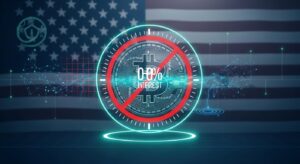
- LayerZero acquires Stargate Finance for $120 million in ZRO tokens.
- Stargate DAO approves acquisition with 95% majority.
- ZRO and STG tokens surged post-announcement.
LayerZero announced its acquisition of Stargate Finance for approximately $120 million in ZRO tokens after receiving overwhelming DAO approval, surpassing competitors like Wormhole.

This consolidation enhances LayerZero’s position in the DeFi landscape, influencing market dynamics as ZRO and STG tokens surged, reflecting significant interest and support from the crypto community.
LayerZero has successfully acquired Stargate Finance for approximately $120 million, primarily using ZRO tokens. This strategic acquisition follows a decisive approval from Stargate’s DAO and stands out after competing bids from other major players.
The merger involves key entities such as LayerZero, known for their omnichain interoperability solutions, and Stargate Finance, a prominent multichain bridge that connects around 50 blockchains. The acquisition was backed strongly by Stargate’s DAO.
Upon the acquisition’s announcement, both ZRO and STG tokens observed a significant surge, climbing by 26% and 20%, respectively. The deal supports the ongoing trend of consolidation in the DeFi space and impacts cross-chain transaction efficiencies.
This transaction involves critical financial implications, with Stargate stakers receiving 50% of the protocol’s revenue for six months. The rest will support ZRO token buybacks, enhancing LayerZero’s ecosystem’s liquidity and economic stability. In the words of the LayerZero Finance Team:
“Our acquisition of Stargate Finance not only strengthens our ecosystem but also consolidates approximately 85% of cross-chain transaction volume, setting a new standard for interoperability.” – source
In summary, this acquisition consolidates about 85% of cross-chain transaction volume, marking a shift in how liquidity pools are managed across networks. This consolidation reflects broader trends seen in decentralized finance mergers.
Regulatory challenges remain a focal point, given the ongoing scrutiny of decentralized finance frameworks by entities such as the U.S. SEC. This acquisition is part of an evolution mirroring the changing dynamics of protocol governance and legality.






